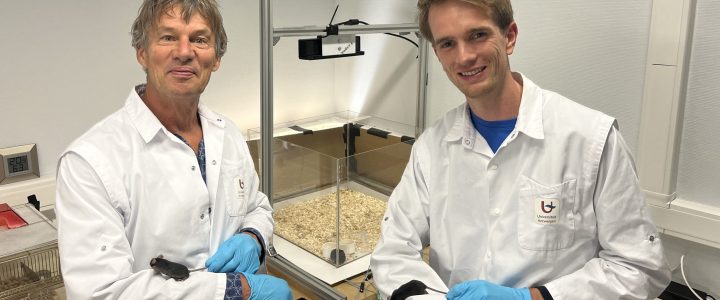Many experts believe that combinations of drugs may be needed to best treat Fragile X syndrome. How can we find the best combinations in the ideal doses? This project — a collaboration between a top university research team and an innovative AI startup both based in Belgium — tackles this challenge.
Read moreDrug Repurposing
Repurposing FDA-Approved Drugs to Treat Major Depressive Disorder in Fragile X Syndrome
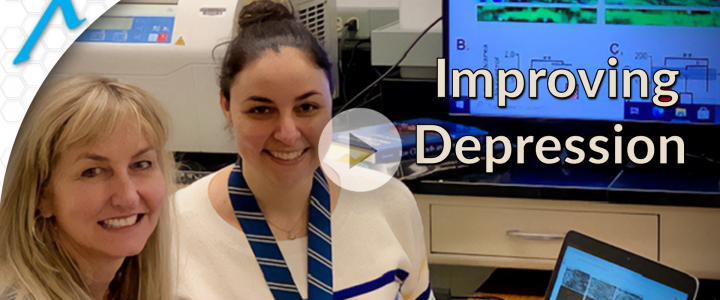
Did you know that depression is more common in those with autism and/or Fragile X? Even more disturbing is the discovery that current treatments for depression do not work in Fragile X mice. With this grant, the team will work to develop a rapid screening tool to identify FDA-approved drugs which can treat depression in people with Fragile X syndrome.
Read morePurposeful and FRAXA Partnership Leads to Clinical Trial

Can a combination of drugs make a meaningful difference for people with Fragile X? A new clinical trial is going to find out. 15-20 adult men with Fragile X will be included in this trial to test the effects of an available drug and a nutritional supplement taken together.
Read moreExploring Drug Repurposing to Restore Hippocampal Function in FXS Mouse Models
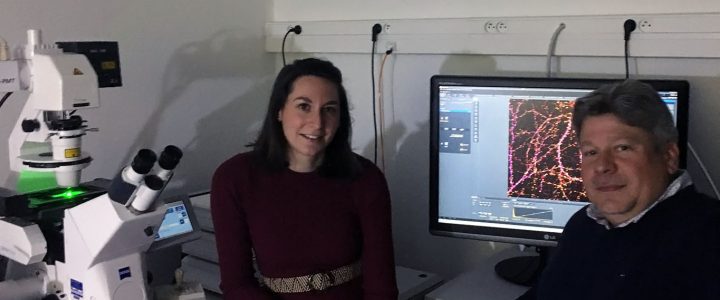
A gene’s job is to produce a protein. In Fragile X syndrome, the FMR1 gene is mutated and cannot make FMRP, a protein which shapes connections between nerve cells (neurons) in the brain. These connections are the basis of learning and memory. This team has discovered a mechanism involving FMRP that is absolutely essential to control the connections between neurons. These connections are the basis of learning and memory. They will now test available drugs which directly target this mechanism, to see if they can treat Fragile X syndrome.
Read moreContribution of Microglia to the Therapeutic Effects of Metformin and Adiponectin in Fragile X Syndrome

The research team of Brian Christie, PhD and Marie-Eve Tremblay is developing ways to balance hormones, including drugs like metformin and changes in diet, which could not only reduce hunger and obesity, but ultimately also improve learning and behavior in Fragile X syndrome.
Read moreCharacterization of Microglia Transcriptional Profile in Fmr1 Knockout Mice Model
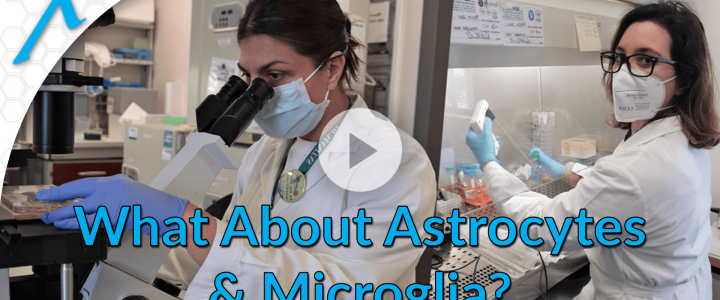
With this grant, the team will identify the pathways responsible for this excessive activation and attempt to reverse the excess. If they can correct this using drugs, they will be able to identify a new potential treatment for Fragile X syndrome solving one more piece of the Fragile X brain puzzle.
Read moreFRAXA Drug Validation Initiative (FRAXA-DVI)

The FRAXA Drug Validation Initiative (FRAXA-DVI) provides speedy, cost-effective, objective preclinical testing of potential Fragile X treatments. FRAXA-DVI uses in-vitro systems, behavior batteries, and gene expression and peripheral biomarker platforms to validate investigational new drugs and repurposed available compounds in Fragile X syndrome (FXS).
Read moreCholesterol-Dependent Changes in Fragile X Astrocytes

FRAXA Research Foundation has awarded $45,000 to Dr. Maija Castrén, of the University of Helsinki, Finland. Dr. Castren is working with Dr. Iryna Ethell, at the University of California at Riverside, to uncover mechanisms behind beneficial effects of lovastatin and cholesterol-dependent changes seen in the Fragile X brain.
Read moreConsidering Available Drugs for Fragile X: My Favorite Combination (So Far)

Which of the available drugs are best for fragile X? We tend to think of drugs according to their primary activity in the body, but very few drugs are totally selective and specific. There are differences between drugs in any given class, and these differences may be critical. Most drugs have “off-target” effects which are usually considered side effects, and it is these side effects which can have key advantages, in some cases.
Read moreHealx Raises $56M to use AI to Find Treatments for Fragile X & Other Rare Diseases

Healx has secured $56M in new financing to build a clinical-stage portfolio for rare diseases, including treatments for Fragile X syndrome, and to launch a global Rare Treatment Accelerator program. Where the traditional drug discovery model takes more than a decade and can run into the billions of dollars, Healx’s AI-driven approach makes the process faster, more efficient and cost-effective.
Read moreNKCC1 Inhibitor Bumetanide Corrects Synaptic and Circuit Hyperexcitability in Fragile X Mouse Model

With $258,000 in grants since 2013 from FRAXA Research Foundation, Dr. Anis Contractor and Dr. Qionger He at Northwestern University are exploring the potential of the available drug bumetanide to correct altered GABA signalling in a mouse model of Fragile X syndrome.
Read moreRepurposing Study II: Evaluating Combinations of Drugs to Treat Fragile X

FRAXA Research Foundation initially partnered with Healx in 2016 to identify existing drugs with potential to treat Fragile X syndrome, using machine learning algorithms and computational biology. The study produced results, and now FRAXA and Healx have launched a new round of studies to evaluate combinations of compounds, including both drugs and natural products.
Read moreDrug Repurposing Study Results Accelerate Progress Towards Fragile X Treatments

While there are over 8,000 rare diseases affecting an estimated 350 million people worldwide, only around 200 of these conditions have effective treatments. Due to the high cost of developing new drugs, rare diseases have historically been less attractive to pharmaceutical companies. Drug repurposing systematically leverages the detailed information available on approved drugs and reduces the time and money needed to deliver safe “new” treatments, but with greater success rates and a potentially more immediate impact on health care.
Read moreQuantitative Assessment of the Serotonin System in a Mouse Model of Fragile X Syndrome

FRAXA Research Foundation awarded a grant of $90,000 over two years to Clinton Canal, PhD. Dr. Canal, previously a research assistant professor at Northeastern University, has just launched his own lab at Mercer University in Atlanta, GA, to focus on Fragile X research.
Read moreDevelopment of a High-Content Synapse Assay to Screen Therapeutics for Fragile X Syndrome

With a $45,000 grant from FRAXA Research Foundation in 2009, Dr. Mark Bear and Dr. Asha Bhakar used High Content Screening (HCS) to develop an assay sensitive to the effect of the FXS genotype. This project was funded in full by NIH after the first year.
Read moreTargeting Serotonin Receptors to Treat Behavioral and Psychological Symptoms
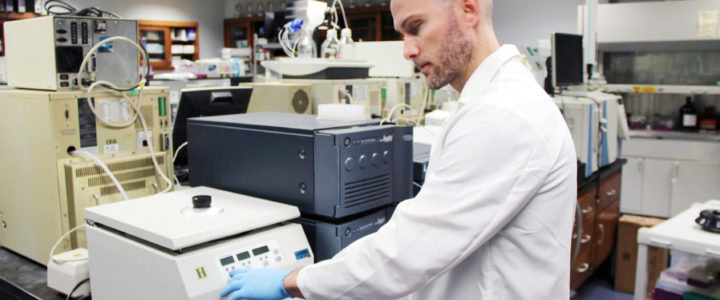
With a $90,000 grant from FRAXA Research Foundation awarded in 2017, Dr. Clinton Canal targets seratonin receptors. “There are 15 unique serotonin receptors (at least) and many of them impact the function of brain circuits that are impaired in neurodevelopmental and psychiatric disorders,” said Dr. Canal. “Results from this project could guide new drug discovery or drug repurposing for Fragile X.”
Read moreMetformin, Diabetes Drug, Potential Fragile X Treatment

“We treated mice with metformin and corrected all the core Fragile X deficits. We are optimistic about using metformin in human clinical trials. This is a generic drug with few side effects” says Nahum Sonenberg, PhD, James McGill Professor, Department of Biochemistry, McGill Cancer Center, McGill University.
Read moreRepurposing Available Drugs to Treat Fragile X Syndrome – FRAXA Initiatives
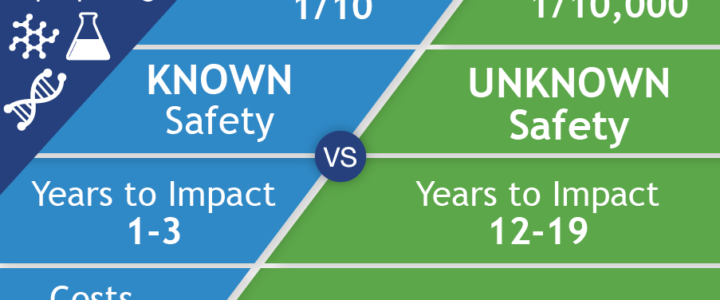
FRAXA Research Foundation was founded in 1994 to fund biomedical research aimed at finding a cure for Fragile X syndrome and, ultimately, autism. We prioritize translational research with the potential to lead to improved treatments for Fragile X in the near term. Our early efforts involved supporting a great deal of basic neuroscience to understand the cause of Fragile X. By 1996, these efforts had already begun to yield results useful for drug repurposing. To date, FRAXA has funded well over $25 million in research, with over $3 million of that for repurposing existing drugs for Fragile X.
Read moreUniversity of Cambridge Startup Healx is Rapidly Identifying Existing Drugs to Help Fragile X Patients

FRAXA awarded $44,000 to Healx in 2017 for drug repurposing to find new treatments for Fragile X syndrome. The results of this study include eight top “hits” which show promise for Fragile X. FRAXA is further investigating these hits.
Read moreRepurposing Drugs to Dampen Hyperactive Nonsense-Mediated Decay in Fragile X Syndrome

With a $90,000 grant from the FRAXA Research Foundation, Dr. Lynne Maquat and Dr. Tatsuaki Kurosaki will investigate nonsense-mediated mRNA decay (NMD) in Fragile X. NMD is a “housekeeping” process that cells use to prevent faulty proteins from being made. But there is too much of it in Fragile X syndrome. There are already available drugs that suppress NMD – including caffeine.
Read moreFruit Flies to Model and Test Fragile X Treatments

Dr. Jongens and his collaborators have found an insulin-like protein in the fly brain that is overexpressed in the Fragile X mutant fly, leading to increased activity of the insulin signaling pathway. Furthermore, they found that certain behavioral patterns in the Fragile X flies can be rescued by expressing the FX gene just in insulin producing neurons in the fly brain. In the mutant, there are other changes in the signaling pathways, including a decrease in cAMP and elevation in PI3K, mTOR, Akt and ERK activity. They now propose to study 2 medicines used for diabetes: pioglitazone (increases cAMP and decreases Akt and ERK) and metformin (inhibits mTOR), in flies and mice to validate the potential efficacy of these novel therapeutics for Fragile X.
Read moreFRAXA Grant to Nahum Sonenberg, PhD — Effects of metformin in Fmr1 knockout mouse model of Fragile X syndrome

Mis-regulation of activity-dependent protein synthesis is one of the major cellular abnormalities found in Fragile X. Upstream neuronal signaling regulates a large cluster of enzymes called the mTORC1 complex, which in turn regulates protein synthesis. This complex is also controlled by cellular energy levels via the metabolic sensor AMP-activated Protein Kinase (AMPK). AMPK is a highly conserved kinase that is activated under conditions of energy stress, when intracellular ATP levels decline and intracellular AMP increases.
Read moreTargeting the Endocannabinoid System in Adult Fragile X Mice

With a $90,000 grant from the FRAXA Research Foundation from 2013-2014, Dr. Andres Ozaita led a team to test rimonabant’s ability to blockade the CB1 receptor. Blocking CB1 has shown potential to reverse most symptoms of disease in mice bred to mimic Fragile X syndrome.
Read moreSeizures in Fragile X Syndrome and Therapeutic Potential of NMDA Receptor Antagonists

With a $90,000 grant from the FRAXA Research Foundation, Dr. Robert Wong is investigating how seizures are generated in Fragile X neurons. More generally, he is looking at how synapses are modified to enable learning and memory and how this process is impaired in Fragile X.
Read moreSocial Behavior as an Outcome Measure for Fragile X Clinical Trials

One of the features of the Fragile X mouse model which is relevant to the human Fragile X syndrome (and autism) is social behavior. Several tests show consistent social behavioral abnormalities in the Fragile X mouse model. With a $140,000 grant from FRAXA Research Foundation in 2012-2013, Dr. Willemsen at Erasmus University used social behavior tests to measure the effectiveness of several drug strategies.
Read more
